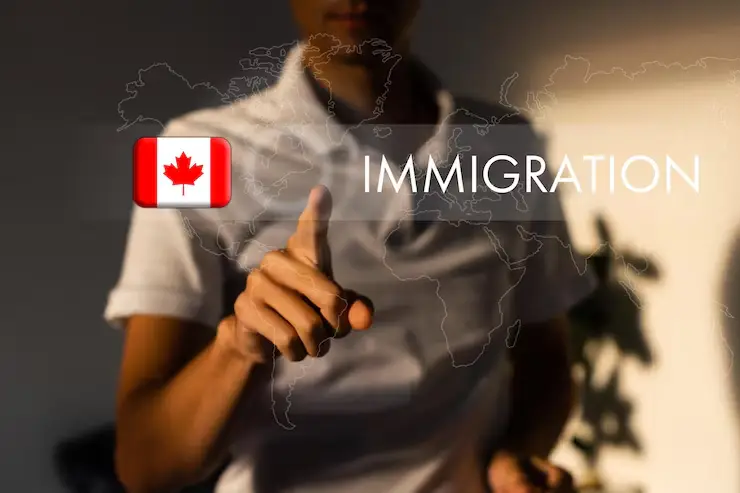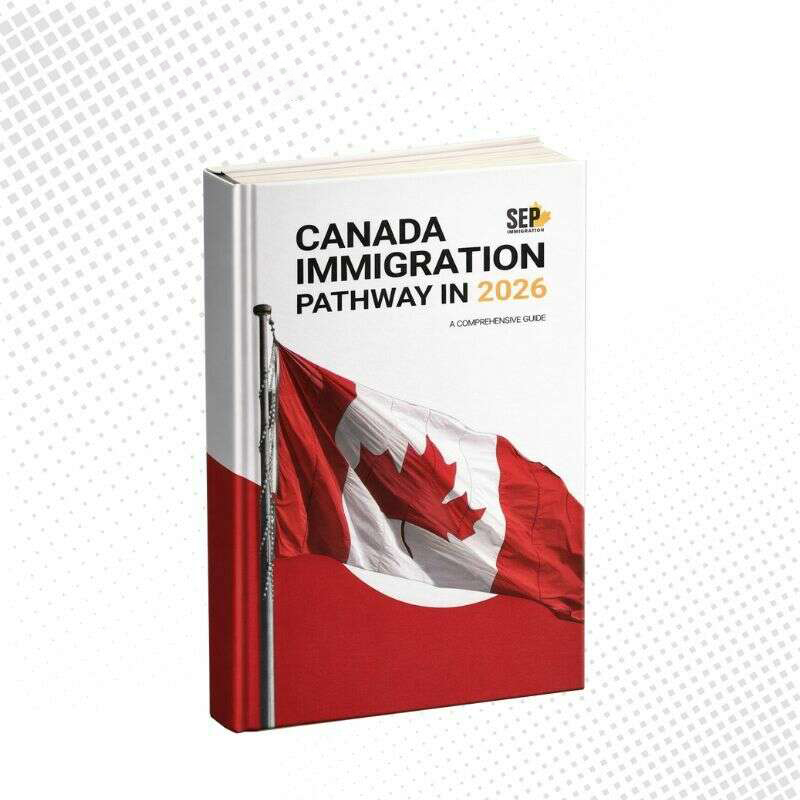
Table of Contents
ToggleWhat Is a Post-Graduate Work Permit?
A Post-Graduate Work Permit (PGWP) allows international students who have completed their studies at a participating Canadian post-secondary institution to gain valuable work experience in Canada.
The primary aim is to help graduates transition from being students to contributing members of the Canadian workforce. This work experience not only boosts their resumes but also plays a crucial role when applying for permanent residency in Canada.
Having a PGWP provides a significant advantage, as Canadian work experience is a valuable asset in the Express Entry system, especially under the Canadian Experience Class (CEC). The CEC is one of the immigration pathways that give weight to individuals who have Canadian work experience, thus increasing the chances of securing permanent residency.
The flexibility of the PGWP is another key benefit. Unlike other work permits, the PGWP is an open work permit, which means you can work for almost any employer in Canada. You are not tied to a specific job or employer, providing the freedom to explore different opportunities and industries that align with your career goals.
Who Is Eligible for a PGWP?
As of December 2025, IRCC’s rules said you could qualify for a post-graduation work permit (PGWP) if you met the core study requirements and, for many graduates, the newer language and field-of-study rules.
Core eligibility (the basics IRCC checked):
- You completed a program at a PGWP-eligible designated learning institution (DLI) that lasted at least 8 months (or 900 hours in Quebec).
- You maintained full-time student status during each academic term, with part-time study allowed only in the final term.
- You applied within 180 days of receiving confirmation that you had completed your program.
Common deal-breakers and special situations IRCC identified:
- Distance learning: In most cases, more than 50% of a program completed through distance learning made a graduate ineligible, with limited COVID-era exceptions.
- Leaves from studies: An unauthorized leave could affect eligibility. IRCC also described situations where an authorized leave of up to 150 days was still acceptable, as long as the school approved it.
- Curriculum-licensing (public–private partnership) programs: These were generally not PGWP-eligible, with limited exceptions tied to when the program began.
- Overseas study components: If part of the program was completed outside Canada, only the time spent studying in Canada counted toward PGWP length.
Language requirement (for applications submitted on or after November 1, 2024):
- Most applicants had to submit language test results.
- Graduates of PGWP-eligible flight schools were exempt.
- Required scores depended on the credential earned:
- Bachelor’s, master’s, or doctoral degrees: CLB 7 in all four language skills.
- Other university programs: CLB 7 in all four skills.
- College or non-university programs: CLB 5 in all four skills.
- Applicants who submitted a PGWP application before November 1, 2024, were not subject to the language requirement.
Field of study rules (mainly affecting non-degree programs):
- For certain programs, eligibility depended on the program’s 6-digit CIP code and whether it appeared on IRCC’s list of approved fields.
- These rules applied mainly to students who submitted their study permit application on or after November 1, 2024, and were not in a bachelor’s, master’s, or doctoral program.
- Several exceptions applied, including for students who applied before that date or who graduated from a PGWP-eligible flight school.
- IRCC updated the eligible field list in July 2025 and noted that future updates were expected.
Deadline to Apply for Post-Graduation Work Permit
A Post-Graduation Work Permit (PGWP) allows international graduates from eligible Canadian institutions to work after completing their studies.
You must submit your PGWP application within 180 days after receiving written confirmation (such as a transcript or completion letter) that you have finished your program.
If your study permit is still valid, you can stay in Canada and apply directly. However, if your permit has expired, you will need to restore your status before applying. Applying within the permitted timeframe is essential — missing the deadline may make you ineligible.

Applying From Inside Canada
Students who remain in Canada after finishing their program can apply for a PGWP while holding a valid study permit. Applications must be submitted within 90 days of receiving confirmation of program completion or before the study permit expires, whichever comes first.
If you apply within those 90 days, you may be allowed to continue working full-time while your application is processed. Once approved, your PGWP will let you work for almost any employer in Canada without needing a job offer at the time of application.
Applying From Outside Canada
If you’ve already left Canada or your study permit has expired, you can still apply for a PGWP from abroad. The same 180-day timeframe applies, starting from the date you receive confirmation that you’ve completed your program.
Applying from outside the country may take additional time due to visa office processing, but eligibility remains the same. You’ll need to include the same documentation as those applying from within Canada and meet all general PGWP criteria.
How Much Does a Post-Graduate Work Permit Cost?
The cost of a PGWP involves several components. As of the latest update, the primary fee for applying for a PGWP is subject to change, reflecting the periodic adjustments made by Immigration, Refugees and Citizenship Canada (IRCC). These adjustments account for inflation and aim to keep Canada competitive with other immigrant-receiving countries.
Here’s a breakdown of what you might expect to pay when applying for a PGWP:
- PGWP Application Fee: The base fee is the primary cost and it can change over time.
- Biometrics Fee: In some cases, you may need to provide biometrics (fingerprints and photos), which comes with an additional fee.
- Restoration of Status Fee (if applicable): If your study permit has expired and you need to restore your status as a student to apply for the PGWP, an extra fee applies.
Considering the Labour Market Impact Assessment requirements might also be necessary if you plan to transition to a job that needs employer-specific work permits.
It’s essential to stay updated on the current fees before applying, as IRCC increases fees every two years. This ensures the application process remains aligned with international standards and covers administrative costs.
While Canada’s fees are generally lower than those in countries with similar immigration systems, it’s crucial to budget for all potential expenses.

Post-Graduate Work Permits Requirements and Qualification
The PGWP is designed to provide opportunities for international graduates, but it comes with specific eligibility criteria. Here’s what you need to know to qualify for a PGWP:
General Requirements:
- Completion of a Study Program: You must have completed a study program at a designated learning institution (DLI) in Canada. The program should be at least 8 months long, leading to a degree, diploma, or certificate.
- Full-Time Student Status: Throughout your studies, you must have maintained full-time status in Canada. There are some exceptions, such as studying part-time during your final semester or taking an approved leave.
- Valid Study Permit: Your study permit must have been valid at some point during the 180 days before you apply for the PGWP.
Exceptions and Special Cases:
- COVID-19 Adjustments: If you had to change to part-time studies between March 2020 and the fall semester in 2020 due to COVID-19, you might still be eligible.
- Quebec Schools: There are specific criteria for certain programs at designated learning institutions in Quebec. Ensure your program meets the new eligibility requirements.
- Distance Learning: Generally, programs completed through distance learning (online courses) are not eligible. However, temporary measures during COVID-19 allowed online studies to count towards PGWP eligibility.
Program-Specific Requirements: Depending on the type of institution and the program, there are varying requirements for PGWP eligibility. Here are some examples:
- Public Post-Secondary Institution: Must have completed a program that is at least 8 months long, leading to a degree, diploma, or certificate.
- Quebec Schools: Programs like vocational training with a duration of at least 900 hours are eligible, provided they lead to a diploma of vocational studies (DVS) or an attestation of vocational specialization (AVS).
- Canadian Private Designated Learning Institution: The institution must be authorized to confer degrees like an associate degree, bachelor’s, master’s, or doctorate.
Ineligibility Factors:
- If your study permit expired more than 180 days before you applied for the PGWP.
- If you have already received a PGWP previously.
- If you studied English or French as a second language or took general interest or self-improvement courses.
- If your program was funded by specific scholarships or you completed most of your studies through distance learning (with some COVID-19 exceptions).

How to Apply for a Post-Graduate Work Permit (PGWP)
Applying for a PGWP requires careful attention to detail to ensure that you meet all the criteria and submit the necessary documents. Here’s a step-by-step guide on how to apply for a PGWP:
Step 1: Gather Necessary Documents You need to provide proof that you completed your study program. This can be done by submitting any of the following:
- Your degree or diploma.
- An official transcript from your institution.
- An official letter from your school confirming completion.
Step 2: Check Your Study Permit Make sure your study permit was valid at some point during the 180 days before applying. If your study permit is about to expire before you get your final marks, you have two options:
- Apply for a visitor record to extend your stay in Canada.
- Leave Canada and apply for the PGWP from outside the country.
Step 3: Complete the Application Online
- Fill out the application form for a work permit. Ensure all information is accurate and matches the documents provided.
- Pay the application fee and any additional fees if required (e.g., biometrics).
- Submit your application online through the official IRCC website.
Step 4: Wait for Processing After submitting, you will receive a notification from IRCC regarding the status of your application. Processing times can vary, so it’s important to apply as soon as possible after you become eligible.
Step 5: After Submission If you applied before your study permit expired, you can work full-time while waiting for a decision. If your application is successful, you will receive your PGWP, allowing you to work in Canada.
Required Documents
To apply successfully, you’ll need:
- A valid passport that covers the entire duration of the requested work permit.
- A valid study permit or proof of restoration of temporary resident status, if applicable.
- An official transcript or completion letter from your institution confirming that you finished your program.
- Proof that you studied full-time in a program lasting at least eight months at a designated learning institution.
- The correct application form (IMM 5710 or as directed by IRCC).
Providing complete and accurate documentation helps avoid delays or requests for additional information from IRCC.
How Long Does It Take to Get a PGWP?
IRCC did not publish a fixed processing time for PGWP applications. Instead, applicants were directed to the online processing time tool, which changed regularly.
Key points IRCC highlighted:
- Processing time began when IRCC received a complete application.
- For online submissions, that meant the date the application was submitted; for paper applications, the date it arrived at IRCC.
- Processing length could vary based on application volume, how quickly documents can be verified, and how quickly an applicant responds to requests.
As a general reference point, IRCC’s service standards are listed:
- 60 days for most initial work permit applications submitted from outside Canada.
- 120 days for work permit extensions submitted from inside Canada.
What to Do After Your PGWP Is Approved
Once your PGWP is approved, it’s time to plan your next steps:
- Start Working: You can begin working full-time in Canada. Use this opportunity to gain valuable work experience in your field of study. This experience can be crucial when applying for permanent residency.
- Consider PR Pathways: While on a PGWP, you can start planning for your transition to permanent residency. Canadian work experience is a key factor in immigration pathways like the Express Entry system, specifically under the Canadian Experience Class (CEC).
- Extend or Change Work Permits: In some cases, you may want to explore options for extending your stay in Canada or transitioning to other work permits, depending on your career goals and eligibility.
Need assistance with your PGWP application or navigating the path to permanent residency in Canada? At SEP Immigration, we are here to guide you every step of the way. Contact us for tailored support and professional advice
FAQs
Yes, work experience gained through a PGWP can support your application for permanent residency in Canada. Programs like the Canadian Experience Class (CEC) under Express Entry give weight to candidates with Canadian work experience
The PGWP’s validity ranges from 8 months to 3 years, depending on the length of your study program. Programs shorter than 8 months do not qualify for a PGWP, while programs lasting 2 years or more typically result in a 3-year work permit.
A Post-Graduation Work Permit (PGWP) is an open work permit that lets recent graduates work in Canada to gain valuable experience.
No. You must apply within 180 days of completing your program or before your study permit expires.
After gaining work experience under a PGWP, you may be eligible to apply for permanent residence through programs like the Canadian Experience Class.
The validity depends on your program length — up to three years for programs lasting two years or more.
Yes. An employer may apply for a Labour Market Impact Assessment (LMIA) to support a future work permit or permanent residence application.
No. You can receive a PGWP only once. If you plan further studies, apply after completing your longest qualifying program.




